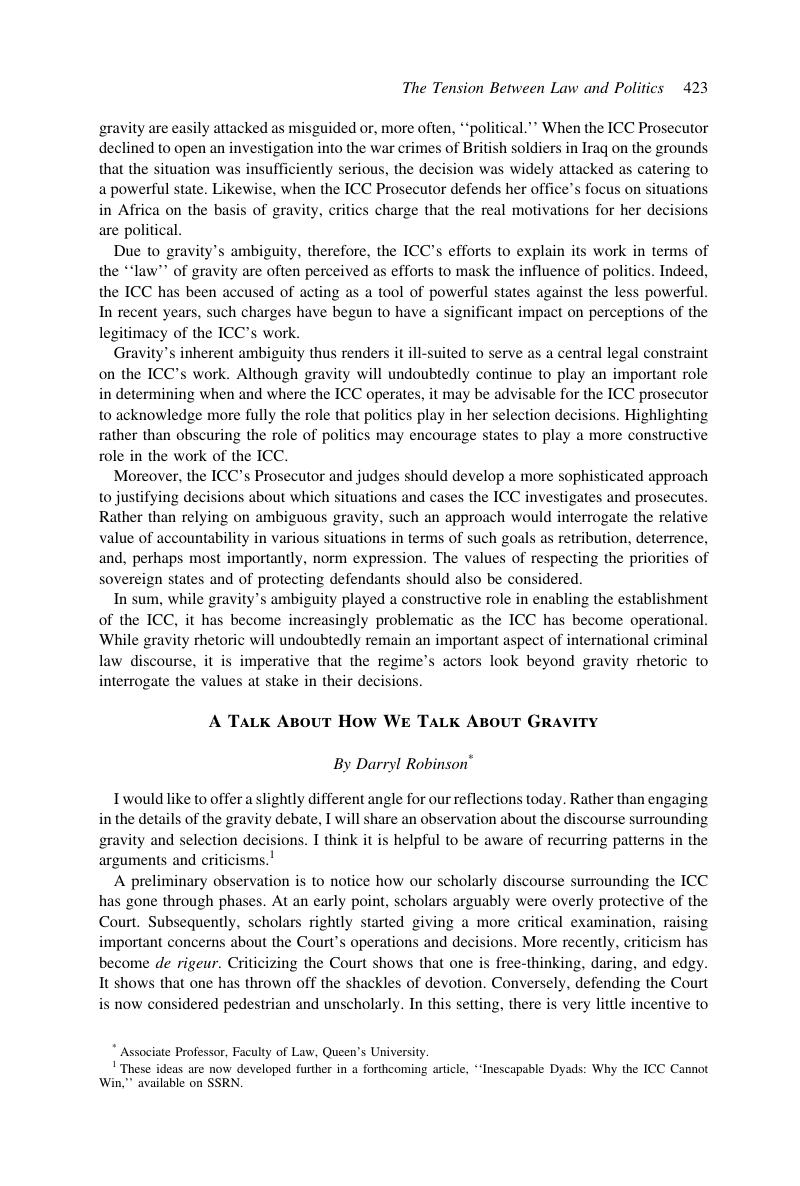No CrossRef data available.
Published online by Cambridge University Press: 20 January 2017

1 These ideas are now developed further in a forthcoming article, “Inescapable Dyads: Why the ICC Cannot Win,” available on SSRN.
2 Mariti Koskenniemi, From Apology to Utopia: The Structure of Legal Argument (2005).
3 Fulfilling that task might involve taking into account the cooperation environment and the concerns and criticisms of different stakeholders. My point is simply that that adapting to the latest round of criticisms is not the raison d’être of the ICC. The reactions and inputs are useful in making calibrations in how best to build legitimacy and effectiveness, and even in helping to inform and refine the institution’s mandate, but pleasing the crowds is not the mandate per se.